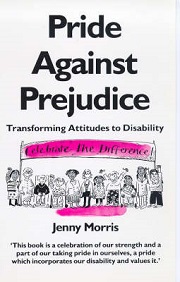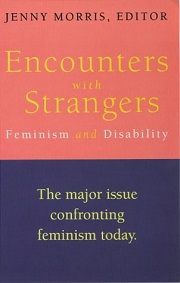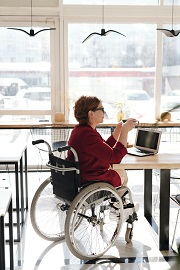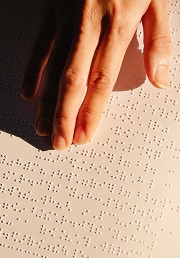How will these resources help you?
Just over fifty years ago (in February 1970), the first National Women’s Liberation Conference was held in Oxford and the story since then is well known and widely celebrated. Women of different classes and races across Britain were inspired by the mantra ‘the personal is political’ and achieved historic victories in terms of reproductive rights, employment and equal pay. But what about disabled women? We are taught to think of disabled people as passive and dependent and not as people with political agency who have always been involved in activism and liberation movements. In the 1970s, disabled women began to organise specifically around their shared experience of disability and womanhood. However, their stories and perspectives are rarely included in historical narratives celebrating the Women’s Liberation Movement. The ways in which disabled women were involved in the Movement often differ from stereotypical ideas of what second-wave feminism looked like. For example, many of their campaigns focused on making existing feminist resources and activities more physically accessible. The work of disabled women is therefore crucial to broadening our understanding of the many different forms that feminist activism could take during this period.
A personal perspective

Pride Against Prejudice: Transforming Attitudes to Disability
by Jenny Morris, published by The Women’s Press, (1991), 9780704342863
In the early 1990s, this book became a pioneering addition to the emerging field of feminist Disability Studies, and it is as relevant today as it was when it was written. Morris draws on her own experience of becoming physically disabled as an adult to make wider observations about the challenges of navigating the world as a disabled woman. She also uses the testimonies of eight other disabled women to illustrate patterns of discrimination based on stereotypes of both gender and disability. She addresses a wide range of subjects including reproductive rights, community care and representations of disability, interrogating each from a feminist perspective. Overall, the book highlights the growing politicisation of disabled women and how they connected ‘the personal is political’ to their everyday experiences.
Feminist issues

Encounters with Strangers: Feminism and Disability
by Jenny Morris (edited by), published by The Women’s Press, (1996), 9780704344009
This book is an edited collection containing ten thematic chapters written by disabled women. The contributors sought to highlight the marginalisation they felt from both the Women’s Liberation Movement (dominated by non-disabled women) and the Disabled People’s Movement (dominated by disabled men). They wanted to challenge the idea that disabled women’s lived experiences were something extra that could simply be added into the campaigns of both liberation movements. The collection illuminates the rich diversity of disabled women’s lives and centres the perspectives of women with mental health conditions, disabled women of colour and women with learning disabilities. It is an excellent starting point for teachers to use with students to deconstruct the widespread assumptions that encourage us to think of disabled people as a homogenous community.
Political campaigning

Disabled women organising: Feminism and disability rights activism
by Beckie Rutherford, published by The British Library, (2020)
This illustrated article introduces the histories of several different disabled women’s groups organised from the 1970s onwards. It discusses a support group called Gemma, which was founded in 1976 to combat the isolation of disabled lesbians and bisexual women, and Sisters Against Disablement, a collective formed in 1982 aiming to explore the connection between disability and feminism. It explains the impact that these groups had on the Women’s Liberation Movement and encourages readers to consider the work of disabled women as part of the mainstream narrative – not something on the periphery. The article also reflects briefly on the ways that disabled women are carrying out feminist activism in the present day.
Accessible materials – a basic requirement

Kirsten Hearn discusses feminist audio books
published by The British Library, (2012)
This is a short audio extract from an oral history interview with Kirsten Hearn, a blind woman who was involved in several different disabled women’s groups during the 1980s and 90s. In this clip, Hearn discusses what inspired her to set up a collective known as Feminist Audio Books in 1983. Their aim was to make feminist literature accessible to visually impaired women, and they created a network whereby volunteers recorded themselves reading aloud onto tapes and then circulated them to women who needed them. Feminist Audio Books is a brilliant example of resourceful, feminist activism in which non-visually impaired women could offer practical support and allyship.
Further Materials
Images of Ourselves: Women with disabilities talking by Jo Campling (edited by), published by Routledge and Kegan Paul Books, (1981), 9780710008220
Find this book
Beckie Rutherford is a PhD researcher based in the History Department at the University of Warwick. Her research examines the life stories of disabled women in late twentieth-century Britain, particularly seeking to uncover their involvement in grassroots activism and liberation movements.
Text © Beckie Rutherford, 2021.
Text © Beckie Rutherford, 2021.



